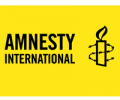Public Opinion Survey in Serbia Sheds Light on ICTY Legacy
 In anticipation of the closing of the ICTY, there has been plenty of discussion, including at EJIL: Talk! (see here), on the court’s impact in the former Yugoslavia, particularly relating to the public’s acceptance of ICTY findings and reconciliation. I’d like to contribute to this discussion with findings from the most recent public opinion survey conducted in Serbia – published in December 2017 (“Awareness of citizens of Serbia about the wars of the ‘90s, war crimes and war crimes trials” designed by the Humanitarian Law Center, commissioned by the Serbian daily Danas and conducted by Demostat – available only in Serbian here).
In anticipation of the closing of the ICTY, there has been plenty of discussion, including at EJIL: Talk! (see here), on the court’s impact in the former Yugoslavia, particularly relating to the public’s acceptance of ICTY findings and reconciliation. I’d like to contribute to this discussion with findings from the most recent public opinion survey conducted in Serbia – published in December 2017 (“Awareness of citizens of Serbia about the wars of the ‘90s, war crimes and war crimes trials” designed by the Humanitarian Law Center, commissioned by the Serbian daily Danas and conducted by Demostat – available only in Serbian here).
The latest survey mostly confirms what we already know from those previously conducted – revisionism and denialism are prevalent, and ethnic bias is entrenched – but it also provides additional information about these phenomena.
Revisionism and denialism
The latest survey confirms that there is overwhelming public distrust in the ICTY and its findings. For example, 56% of the respondents find the ICTY to be partial and biased, while only 6% believe the opposite. Almost half of the respondents consider that the ICTY didn’t contribute in any way to establishing the truth about the wars (p. 17). In line with the findings from earlier surveys, only 12% believe that what happened in Srebrenica is as established in ICTY judgments, while the ignorance pertaining to other ICTY-adjudicated crimes is even greater (e.g. regarding Ovčara 64% don’t know what happened, for the siege of Sarajevo it is 71%, for mass graves in Serbia 83%).
Serbia, through its highest officials, has a long record of refusing to accept findings made by the ICTY, particularly relating to the Srebrenica genocide. In 2015, upon Serbia’s request, Russia vetoed a Security Council resolution intending to mark the 20th anniversary of the genocide. Most recently, the Serbian Parliament amended its Criminal Code, supposedly in order to align it with the EU acquis, and criminalized the public denial of genocide but – and here’s the twist – did so only if the crime has been established by Serbian courts or the ICC. The amendment does not include the ICTY or ICJ – the only two courts which have adjudicated on the Srebrenica genocide.
Not surprisingly, revisionism in Serbia has in recent years been accompanied by the glorification of war criminals and their return to public office and public life in general. After serving his ICTY-imposed sentence for crimes against humanity committed in Kosovo, former Commander of the Pristina Corps, Vladimir Lazarević, had a state-organized welcome ceremony and, two months ago, he became a lecturer at the Military Academy. His co-convict, Nikola Šainović, has become a member of the Main Board of the ruling Socialist Party. Another convicted war criminal – Veselin Šljivančanin – has become a regular speaker at public forums organized by Serbia’s ruling Serbian Progressive Party. The list goes on (see e.g. here, here, here).
Against this background, a finding of the recent survey is rather surprising – an astounding 77% of respondents think that convicted war criminals should not be allowed to participate in political life. Such discord between Serbian political reality and the overwhelming public opinion seems to be just further proof of widespread denialism – war criminals should not take part in public life, however, those convicted by the “anti-Serb” ICTY are not guilty in the public’s view.
Ethnic bias
The survey findings relating to ethnic bias are the most striking. An overwhelming majority of respondents believe that non-Serbian war crimes suspects, who were acquitted by the ICTY, are guilty. The findings suggest that their ethnicity (i.e. non-Serbian ethnicity) is the crucial factor when delivering the “verdict” of the public opinion. When asked whether Kosovo’s incumbent Prime Minister (acquitted by the ICTY in 2012) is guilty, 64% consider that he is. Not one respondent of Serbian ethnicity found him not guilty. However, when asked what exactly he is guilty of, 40% did not know the answer, while the other 60% gave vague and general responses (e.g. “killings”, “war crimes”). A less obvious finding on ethnic bias was that 42% of respondents believe that Haradinaj could have a fair trial in Serbia, even though 41% of these 42% don’t consider the local war crimes judiciary to be impartial (p. 23). The responses were almost identical in relation to the former senior Commander of Bosnian Muslim forces in Srebrenica Naser Oric (acquitted by the ICTY in 2008).
The respondents’ ethnic bias was further tested when they were asked whether a fictional person with an obviously Croatian name (Krešimir Horvat) was guilty – while the majority did not respond, 12% found him guilty, out of which 8% “knew” what he was guilty of.
Ethnic bias was further confirmed in the survey when the respondents were asked to rank how close they consider other nations to be to the Serbs. An overwhelming majority found Albanians (80%), Croats (66%) and Bosnians (57%) to be the most distant, while all other, mostly randomly picked, nations were considered closer. An expected finding was that with the increase of distance towards Albanians, Croats and Bosnians, the belief that Serbs were the greatest victims and had the fewest perpetrators also increased. Half of the respondents considered Serbs to be the greatest victims of the wars and 5% (the least number of respondents) considered most perpetrators to be Serbs (pp. 32-33).
One of the key findings relating to the public’s ethnic bias is that those who consider themselves well-informed about war crimes trials (about half of the respondents) are those who demonstrated the most ethnic prejudice – they were the most likely to find non-Serbian “suspects”, including the fictional one, guilty (p. 27-28, 31). This finding shows that the public’s motivation for getting informed is for the purpose of confirming their pre-established beliefs (a point effectively argued by Marko Milanovic in ‘Establishing the Facts About Mass Atrocities: Accounting for the Failure of the ICTY to Persuade Target Audiences). Not unexpectedly, confirmation bias – i.e. the tendency to search for and interpret information in a way that confirms one’s preexisting beliefs – was not found only when testing the public’s ethnic bias, but also when testing their attitudes towards the ICTY. Namely, 76% of those who consider themselves well-informed about war crime trials find the ICTY to be partial and biased (p. 15) and are the least likely to believe that the court contributed to establishing the truth about the wars (p. 17). Furthermore, out of the 56% of respondents who find the ICTY to be biased, the majority based its response on vague reasons such as repeating that the court is “biased” (16%), “political” (2%), “anti-Serb” (16%) (pp. 14, 16). The majority of those who accounted for their distrust in vague generalities are the highest educated respondents (57% of 45%) (p. 16).
What to expect?
Despite the vast factual legacy of the ICTY which should lay the foundation for reconciliation in the region, the people in the former Yugoslavia are in fact further away from each other than ever. In the ICTY’s defense though, the survey doesn’t support the hypothesis that had the ICTY been perceived as impartial it would have persuaded the public in its findings. On the contrary, the survey suggests that no matter what the ICTY had done, it would not have been able to convince the Serbian public that some of the gravest crimes during the wars have been committed by Serbs and that Serbs were not the greatest victims. This conclusion is supported by the survey findings that out of the 56% of respondents who find the ICTY to be biased, the majority cannot state a concrete reason for believing so (pp. 14-16); or that, although 47% of the respondents consider Serbs to be the greatest victims of the wars, 52% of them cannot name a single crime committed against Serbs (pp. 31, 52).
Leaving aside the issue of whether reconciliation was in the ICTY’s mandate, the court was doubtlessly a tool for restoring and maintaining peace in the Western Balkans. We know that this goal wasn’t achieved in the short-term as the Srebrenica genocide and the Kosovo conflict took place after its establishment. Unless we define peace as the mere absence of war, these latest public survey results question whether this goal has been achieved even in the long-run considering the rampant and worsening revisionism, denialism, ethnic nationalism and warnings of new conflicts.
International justice’s ability to reach the public in the former Yugoslavia will be tested again shortly after the ICTY’s closure, as the new special court for Kosovo is about to issue its first indictments. The court is supposed to prosecute former Kosovo Liberation Army members for, among others things, crimes against Serbian victims. There is no reason to doubt that the indictments and eventual judgments will produce the same polarized reactions in both Serbia and Kosovo, just as with the ICTY, and that the court will be able to do little or nothing to shift entrenched nationalist narratives about the conflict.
Author: Milica Kostić








